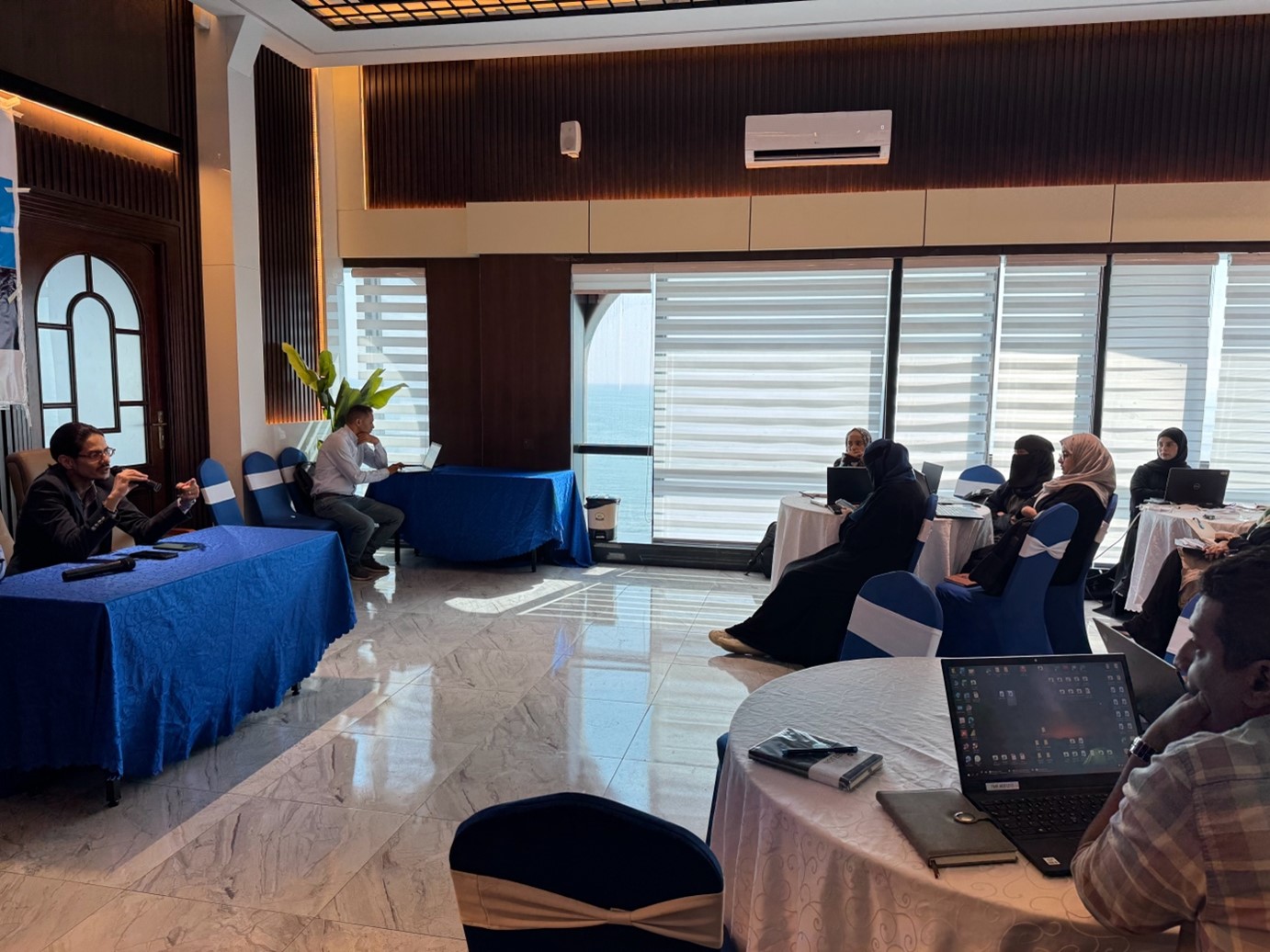Yemen’s humanitarian crisis continues to strain an already fragile health system, with 19.6 million people in need and nearly 7 million targeted for assistance through the Health Cluster. Severe underfunding (just over 45% of requirements met), coupled with the designation of the authorities in the north as Foreign Terrorist Organizations, has further reduced humanitarian space, forcing several NGOs to scale back, disrupting supply routes, and limiting access to affected populations. The health system remains heavily reliant on partner support for essential services, staffing, and emergency response.
Amid this challenging environment, the withdrawal of USAID from humanitarian assistance in early 2025 caused widespread defunding and affected the continuation of iMMAP’s operations in the country. An important standby partner to the Yemen Health Cluster, iMMAP had previously provided critical support to the Information Management pillar. Their withdrawal compelled the Cluster to adopt simpler mechanisms to maintain uninterrupted reporting of partners, monitor progress against the HNRP 2025, ensure visibility of partner interventions through published visual products, and to sustain data quality and analysis for the development of the prioritized HNRP published by Yemen in May 2025.
Within this context, the Yemen Health Cluster, with funding support from the Global Health Cluster, was able to conduct a long-overdue three-day training on data management and reporting tools. The training aimed to enhance health partners’ understanding of the Health Cluster Data Collection Tool, modified to conform to the new realities of defunding; introduce the KoBo Toolbox as a digital data collection platform for field reporting; and to introduce participants to Microsoft Power BI for data visualization and analysis.
The training took place in Aden from 27 to 29 October 2025 and brought together 50 participants from Health Cluster partner organizations including Information Management Officers, MEAL Officers, and Data Focal Points.

Photo: ©Health Cluster/Yemen
The training workshop supported a strengthened data management capacity of the partner agency focal persons; enhanced partners’ ability to analyze and visualize data through the relevant tools; and reiterated data-driven planning and evidence-based decision-making, with the overall aim to ensure improved data quality, consistency and timely reporting to the Health Cluster, which would enhance visibility and accountability to affected people.
Information management is essential for coordination. Clear, reliable data allows partners to understand needs, spot gaps, and steer collective action. Even with reduced IM capacity, the Health Cluster continues to safeguard core information systems to maintain a coordinated and accountable health response in Yemen.
To sustain and build upon the achievements of this training, the following steps are recommended:
1. Advanced and Thematic Trainings
- Advanced Excel Training
- Advanced Kobo Toolbox Training: including complex form design (repeats, cascading selects, and API integration) and linking Kobo data with other platforms.
- Advanced Power BI Workshop: featuring DAX functions, calculated columns, and publishing organization-level dashboards connected to live data sources.
- Data Quality and Validation Training: emphasizing data accuracy, error handling, and the use of automated checks to ensure high-quality submissions.
- GIS and Mapping Integration: introducing participants to geographic data visualization using Power BI Maps or ArcGIS Pro for spatial analysis of health interventions.
2. Refresher and Second Training Round
- Follow-up Training Round (Round 2):
Conduct a second round of the same training for new or previously unavailable staff to ensure continuity of skills across partner organizations. - Refresher Sessions:
Organize periodic refresher sessions (every 3–6 months) to reinforce learning and address new data management challenges faced by partners.
